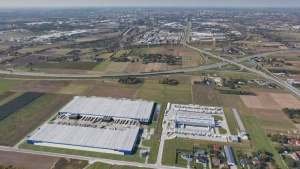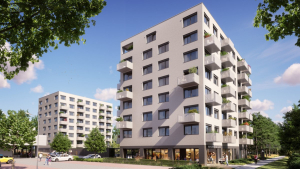
Results from the INREV Quarterly Index for the first quarter of 2020 reveal initial signs of the negative effects of the COVID-19 pandemic on the European real estate industry, with the lowest quarterly performance since Q4 2012.
Total real estate returns dipped to 0.22% from 1.80% over the previous quarter, with capital growth slipping from 0.37% to -0.47% and distributed income falling from 1.43% to 0.68%.
Declines were recorded across the majority of strategies. Core fund performance decreased from 1.71% to 0.28%, while value-added funds slumped considerably further from 2.96% to -0.73%. UK funds posted the deepest drop from -0.15% to -2.46%, partly reflecting their mark-to-market valuation approach. Unsurprisingly, retail funds continued to feel the chill, dropping from -1.32% to -2.20%, but funds focused on office, residential and industrial/logistics also saw a drop-off in returns compared with the previous quarter.
A consistent picture
The general downward trend in performance was reinforced by two further indices over the same period. The European ODCE Quarterly Fund Index, which is comprised of low leveraged core open-end diversified funds, recorded a total return of -0.14% in the first quarter of this year, down from 2.61% at the end of 2019.
Similarly, the INREV Asset Level Quarterly Index saw total returns drop from 2.24% in the last quarter of 2019 to 0.55% in Q1 2020. This was driven by a drop in capital growth of 185 bps, down from 1.45% to -0.40%. Income return, on the other hand, remained stable at 0.96%.
Cautious sentiment
The INREV COVID-19 Sentiment Survey and Impact on Valuations Survey – both conducted in May – highlight a generally cautious approach to the overall outlook. A majority of respondents to the valuations survey indicated they had valued their portfolios under the ‘material valuation uncertainty’ or other similar clause, pointing to varying degrees of uncertainty in different markets and / or sectors. According to the surveys, most market participants broadly retain their confidence in the European real estate market. However, more respondents have changed their investment plans than have not.
Henri Vuong, INREV’s Director of Research and Market Information, said: “Collectively, these data point toward an environment of downside risk and we should anticipate lower expectations for real estate performance in Europe in the medium term. However, unlike the immediate aftermath of the global financial crisis, the market is not over-leveraged and funds are sufficiently well capitalised to be able to restructure their debt if required.”
The INREV Quarterly Index is a net asset value and time-weighted return calculated using a Modified Dietz methodology. This quarter’s release includes 329 institutional funds with a total gross asset value of €263.3 billion as at end of Q1 2020.
INREV, the European Association for Investors in Non-Listed Real Estate Vehicles, was launched in May 2003 as a forum for institutional investors and other participants in the growing non-listed real estate vehicles sector. The association represents and reflects an industry with a total value of €2.8 trillion and INREV members deliver €385 billion of stimulus to the real economy of Europe. INREV has 464 members which include 86 of the largest institutional investors as well as 40 of the 50 largest real estate fund managers, plus banks and advisors across Europe and elsewhere.



